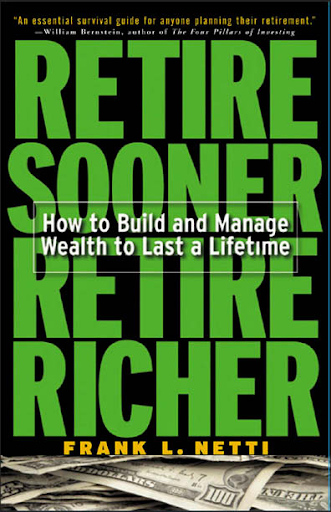A Dystopian World Where Only Scholarship Students Can Attend School
Imagine a world where formal education is no longer a right but a prize—granted only to those deemed “worthy” by a ruling elite. In this dystopian future, there are no public schools, no equal access, and no second chances. Only students who win scholarships—ruthlessly competitive and strictly monitored—are allowed inside the gates of learning. Everyone else? Cast aside, forgotten, or forced into labor camps with no hope of social mobility.
This fictional scenario, chilling in its logic and gripping in its implications, serves as the foundation for a powerful speculative novel. It explores how education, once seen as a tool for liberation, can become a mechanism of oppression when controlled by ideology, data, and power. In this imagined world, we encounter characters who navigate the razor’s edge of ambition and fear, caught in a system that promises opportunity but delivers control.
In this blog post, we’ll unpack how this dystopian narrative might unfold, its relevance to real-world debates about meritocracy and educational inequality, and why speculative fiction remains one of the most potent forms of social critique.
1. The Setting: When Education Becomes a Scarce Commodity
The novel takes place in the state of Novara, a totalitarian regime in a post-climate-collapse world. Resources are scarce. The ruling party, known as the Order of Optimization, claims that universal education is a wasteful luxury. Their solution? A “scholarship-only” system that allows only the most promising children to attend school.
From the age of six, children are entered into a national competition known as the Trial of Worth. It's a brutal, multilayered selection process involving cognitive testing, physical trials, moral judgment assessments, and surveillance of family history. Those who pass are awarded a coveted Learning License. Those who fail are “Redirected”—a euphemism for being exiled from the academic world forever.
There are no retests. No appeals. No tutors. You pass or you perish—intellectually and socially.
2. The Protagonist: Surviving the System
Enter Kian Vale, a 15-year-old from the Outer Zone whose older sister was Redirected at the age of ten. Kian’s family lives under constant surveillance, their every move recorded by government-issued wristbands. Kian is one of the top scorers in his district, but he’s also haunted by doubt. He sees what others do not: that the scholarship system rewards not just intellect, but obedience, conformity, and psychological resilience.
In secret, Kian begins documenting the stories of other scholarship students—some of whom mysteriously disappear when they question the system. He starts to suspect that the education program isn’t just about nurturing talent—it’s about producing ideologically compliant citizens who will never rebel.
3. The Scholarship as a Double-Edged Sword
In this dystopia, the scholarship is both a blessing and a curse. On one hand, it’s the only path to a better life. Scholarship students live in protected zones, receive food credits, and have access to medical care and cultural privileges.
On the other hand, scholarship recipients are closely monitored. Their thoughts, expressions, and relationships are regulated. A single act of defiance can lead to Expulsion—a fate worse than failure.
Thus, the novel examines how the pursuit of opportunity becomes a form of psychological warfare. Students are trained to suppress their individuality, distrust their peers, and idolize a system that sees them as tools rather than people.
4. Parallel Characters and Contrasts
The story introduces Sira, a brilliant girl who barely failed the Trial of Worth due to a false flag on her family's genetic health history. Now Redirected, she works in the hydro-farms outside the city and runs an underground network that leaks real-time footage of scholarship school life to the public.
Sira and Kian’s paths eventually cross, and their divergent experiences—one inside the system, one outside—offer sharp contrasts:
-
Kian has access to knowledge but is suffocated by scrutiny.
-
Sira has freedom of thought but no platform to use it.
Together, they dream of a world where education is a right, not a weapon.
5. Themes and Allegory
This dystopian tale taps into real-world anxieties and philosophical questions, including:
- Merit vs. Injustice
The story challenges the idea that meritocracy is fair. If only the “top” students get to learn, then what happens to those whose talents lie outside measurable metrics? What about trauma, poverty, or systemic bias that affects performance?
- Surveillance and Control
Through biometric monitoring and psychological scoring, the novel illustrates how the scholarship system acts as a tool of population control, selecting future leaders and silencing the rest.
- Scarcity and Manufactured Value
By creating artificial scarcity in education, the regime increases its power. The novel critiques how some modern societies commodify knowledge and restrict access to it via tuition fees, entrance exams, and standardized testing.
The underground network led by Sira represents grassroots education, peer-to-peer teaching, and the preservation of curiosity in dark times. It echoes historical movements like clandestine schools during apartheid or underground reading clubs in authoritarian states.
6. Critical Moments in the Narrative
Key plot points include:
-
The Ceremony of Selection: Broadcast nationwide, this Hunger Games-style event dramatizes scholarship results, turning children’s futures into state propaganda.
-
The Secret Curriculum: Kian discovers that high-level scholarship students are being taught to design AI weapons, suppress protests, and rewrite history—not for enlightenment, but for control.
-
The Escape: With Sira’s help, Kian fakes his own Expulsion and joins the underground movement. Together, they leak the “Core Algorithms” of the scholarship system, showing the public how arbitrary and rigged the process is.
-
The Uprising: The novel ends with a quiet but powerful revolution: families begin refusing to submit their children to the Trial of Worth. They form Free Learning Hubs, risking arrest to teach the truth.
7. Literary Inspirations
This novel would sit alongside other dystopian classics and contemporary speculative works:
-
George Orwell’s 1984 – Surveillance and ideological control.
-
Suzanne Collins’ The Hunger Games – Selection systems and state manipulation.
-
Kazuo Ishiguro’s Never Let Me Go – Education as preparation for a darker fate.
-
M.T. Anderson’s Feed – The commodification of intelligence.
-
Margaret Atwood’s speculative fiction – Especially her explorations of gender, class, and state control through institutions.
But the novel also injects a distinctly educational critique, imagining what happens when the dreams of access and opportunity become tightly regulated dreams—with nightmare side effects.
8. Why This Story Matters Today
Although fictional, the story resonates with today’s world in several ways:
-
Educational inequality: Across many countries, access to quality education still hinges on zip code, income, and standardized test performance.
-
Algorithmic governance: AI and data are increasingly used to make decisions in schools, policing, and social services—with serious implications for bias and transparency.
-
Meritocratic myths: The belief that success is always earned can blind us to structural barriers and inherited disadvantages.
-
Youth activism: Young people, especially in the Global South, are rising up to demand climate justice, educational reform, and access to knowledge.
In this sense, the dystopia is not a prediction—it’s a cautionary mirror.
Conclusion: What Kind of Future Are We Building?
A dystopian world where only scholarship students can attend school isn’t just a chilling concept—it’s a lens through which we can examine our current educational values and systems. The novel reminds us that fairness isn’t just about giving the best to the best—it’s about making sure no one is left behind.
As readers, we root for Kian and Sira not because they’re the smartest, but because they challenge the lie that only a few deserve to learn. Their rebellion is not just against a regime—it’s against the idea that knowledge should be earned, rather than shared.
In the end, the most radical act in this dystopia isn’t protest—it’s teaching each other freely.








